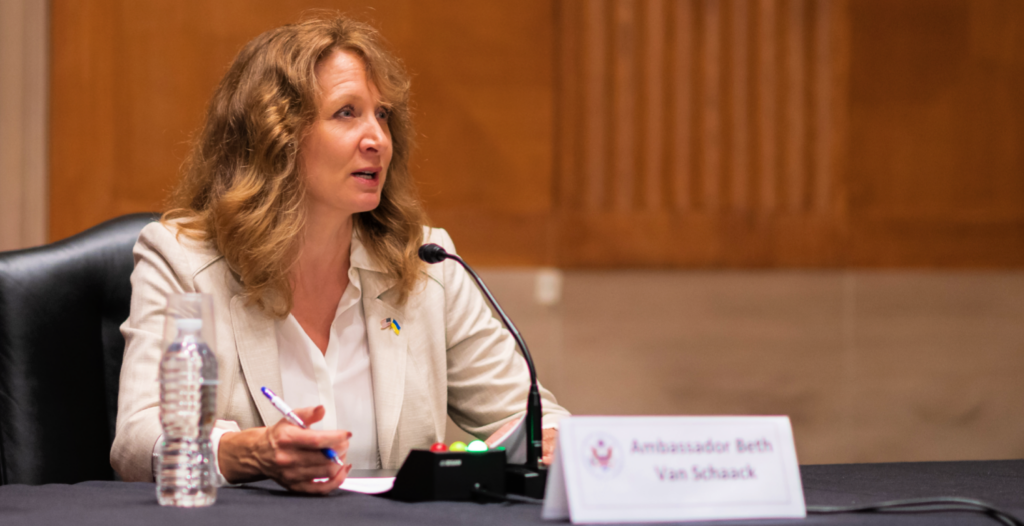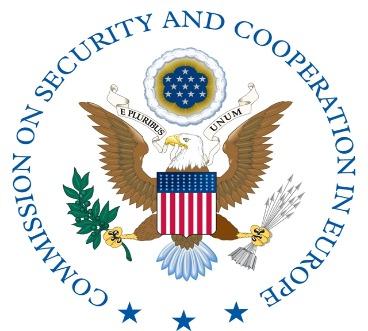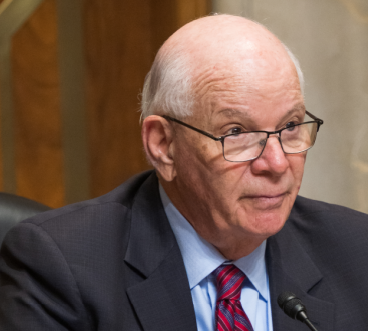Mr. Speaker, in March 2002, the United States and Uzbekistan signed a declaration proclaiming a “Strategic Partnership” between our countries. This former Soviet republic, with the largest population of the five Central Asian countries, has played an important role in assisting the United States after 9/11, and I am grateful for that.
At the same time, as Chairman of the Helsinki Commission, I have deep concerns about the human rights situation in Uzbekistan, where no political opposition, no freedom of speech nor freedom of association are permitted. As a result of this situation, Congress has conditioned the release of financial assistance to Uzbekistan upon a determination by the Secretary of State that Tashkent is making “substantial and continuing progress” in meeting commitments specified in the March 2002 bilateral declaration, including in the field of human rights. The Secretary has twice–on August 26, 2002 and May 14, 2003–made such a determination.
Regrettably, there has been no “substantial and continuing progress” in the field of human rights in Uzbekistan. True, a human rights group has been registered, censorship has formally been lifted, and there have been amnesties, but these are largely token deliverables meant to give the appearance of progress. Uzbekistan has also admitted the U.N.’s Special Rapporteur on Torture. But all these gestures are more cosmetic than substantial. In fact, the U.N. Special Rapporteur concluded that torture is “systematic” in Uzbekistan. Instead of claiming credit for allowing him into the country at all, President Karimov should renounce this barbaric practice and Tashkent should take urgent measures to prevent and punish acts of torture. Unfortunately, thus far President Karimov has refused to take even the simple step of acknowledging and renouncing torture. More to the point, just after the Secretary’s most recent determination last month, Orif Ershanov and Otamaza Gafaro joined the unconscionably long list of individuals who have died as a result of torture or other abuse inflicted by Uzbek officials.
Once again, Uzbek officials maintain that these most recent deaths in custody were the result of “natural causes.” But the country’s deplorable record undermines the credibility of such assertions. Frankly, I am surprised by Tashkent’s claims; last year, there were two cases when Uzbek policemen who tortured prisoners, in some cases to death, received long prison terms. Their sentences constituted a sad form of progress in Uzbekistan, allowing observers to hope that law enforcement officials would have reason to fear serious consequences for mistreating people in their care. The latest assertions about “natural causes” signal clear regression to old positions that damage Uzbekistan’s government and should be an embarrassment to the United States.
Particularly with respect to torture, Tashkent should immediately take several steps to demonstrate to the international community a serious commitment to make meaningful progress.
First, the Government of Uzbekistan should provide immediate access, organized by the OSCE, for independent medical experts to examine the bodies of Ershanov and Gafaro. Unfortunately, we have received indications that Uzbekistan is balking at admitting independent forensic specialists. Furthermore, Tashkent should establish a system of access for independent experts to investigate all cases of alleged torture and should act on the recommendations of the U.N. Special Rapporteur on Torture.
It is equally important that Uzbekistan unconditionally release those who have been jailed because of their political opposition or religious affiliation. I have repeatedly urged Uzbek officials, including President Karimov during his visit to Washington in March of last year, to release the writer Mamadali Makhmudov, for example. One of the Bekjanov brothers has indeed been freed, but two of his siblings remain in prison, and we have received reports from family members of their declining health. As the most recent deaths in custody demonstrate, fears that such prisoners may die from their mistreatment during incarceration are well founded.
Mr. Speaker, improved relations are in the interest of both Uzbekistan and the United States. But closer, deeper ties will not be built on the graves of Uzbekistan’s citizens who have been tortured to death. I hope, Mr. Speaker, that I will soon be able to report back to my colleagues that President Karimov has taken meaningful steps to confront torture and bring a measure of justice to its victims.









